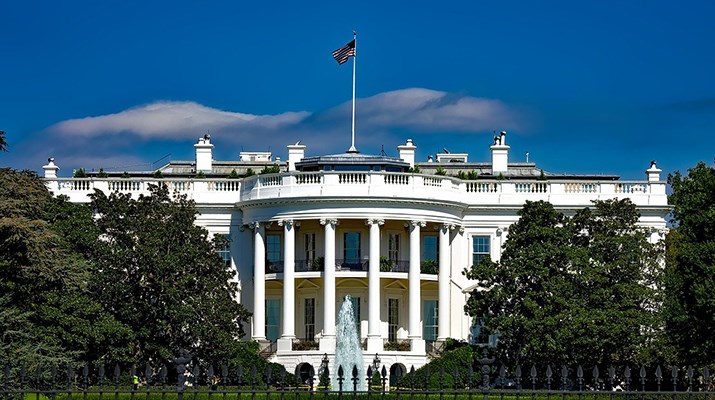
The US election is less than a month away and many investors may be wondering what the outcome of the Presidential race might mean for their portfolio. While it can be tempting to start tinkering with your portfolio to prepare for the result, politics and the stock market are notoriously hard to predict.
We spoke to US fund managers to find out how they are positioning their portfolios:
Biden vs Trump
Which sectors may thrive in the coming months and years could vary vastly depending on the outcome of November's election.
If the Republicans are re-elected the US faces four more years of pro-growth economic policies under a second Donald Trump term. The situation would be markedly different under the Democrats, whose polices are typically seen as less market-friendly, with potential measures such as raising corporate tax rate and increasing minimum wage.
However, Democratic candidate Joe Biden also plans a sizeable increase in spending on education, healthcare and infrastructure, which could be a boon for many businesses. In particular, he is an advocate of green infrastructure, which will focus on reducing carbon emissions, investing in green energy and more efficient buildings. He is also expected to expand the Obamacare healthcare programme to a bigger part of the population and invest in the electric vehicle eco-system.
Trump, on the other hand, could be more positive for those carbon-intensive parts of the economy such as energy and utilities.
What Does it Mean for Investors?
Zehrid Osmani, manager of the five-star rated Legg Mason IF Martin Currie US Unconstrained fund, believes the election of Biden and the expansion of Obamacare would have a negative impact on large pharmaceutical companies.
Higher corporation tax rates, meanwhile, could be negative for big companies in terms of earning implications, but Osmani doesn't expect it to have a material impact on profits. And while an increase in minimum wage could have negative implications for labour-intensive industries, it should have a positive effect in the consumer sector, he believes.
“With all that in mind, we are not going to make any changes in the portfolio in the run up to the election,” says Osmani. “We are mindful of possible shifts in policies and we have adjusted our estimates, but we are not going to make material effect on our portfolio.”
Mcintosh-Whyte, multi-asset manager at Rathbones also advocates not trying to guess who will win the election: “No party is likely to win both the Senate and the House, and so whichever candidate is the next President, their ability to affect real change will be limited,” he says.
Of course, the effects of the US election result will ripple far beyond the country's borders. Investors should not forget how areas such as Latin America and China are tied up to the US story.
While the relationship with China might not improve under Biden, Jack Janasiewicz, portfolio strategist at Natixis Investment Managers, believes that Latin America and Mexico in particular could be a key beneficiary of his proposed stimulus package.
“We could certainly start to see some upside getting priced in and Mexico could certainly be a beneficiary of that US growth story," he says. "And it wouldn't be surprising to me if over the near term, we start to see that start to get priced back into risk assets, and specifically equities in Mexico,” he says.
Don't Try to Time the Market
It’s true that presidential elections often lead to market volatility and this may make some investors nervous. The key is to ensure your portfolio is diversified and not be tempted to try and time the market.
Richard Weiss, chief investment officer at American Century Investments, believes that betting on politics is hard and potentially costly even if you pick the winning candidate or political party.
“It's not just about predicting the winner, you have to time your trades perfectly and correctly guess the effect on the market," he points out. "Investors would do better not to let election predictions or results impact their investment choices."
Weiss believe a balanced approach is best, as well as sticking to your saving and investing plan despite the short-term volatility that political, economic and market conditions may bring.
Some investors might be tempted to trade out of markets around elections and getting back in later, but markets historically go up more often than they go down over time. Weiss warns: “Because market gains often come in short, sharp jumps, being out of the market when these jumps occur could seriously affect your long-term returns.”





























